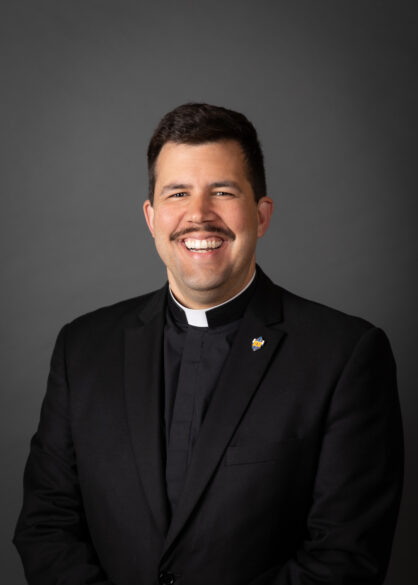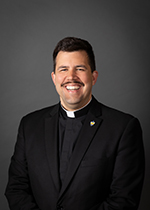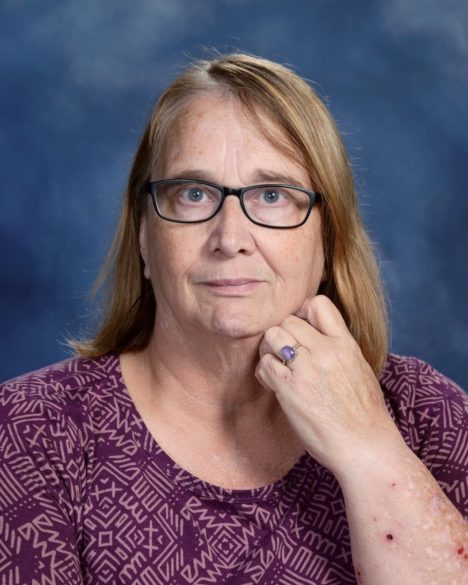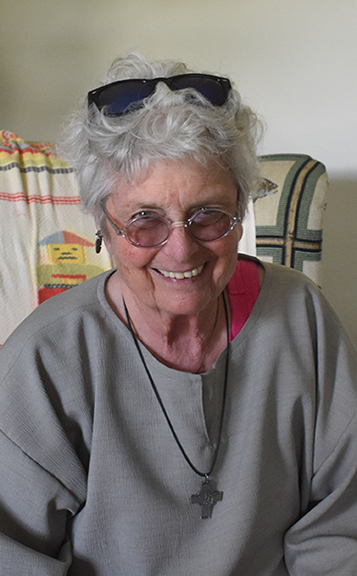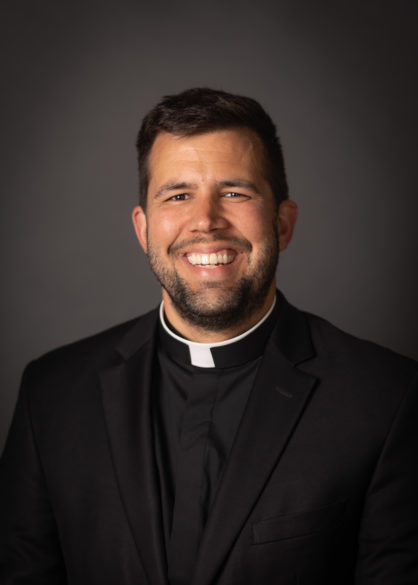CALL TO HOLINESS
By Jaymie Stuart Wolfe
Black History Month is officially observed every February, but there’s something unfortunate about that. Don’t get me wrong: it’s great to recognize the contributions of Black Americans. But dedicating a specific month to doing so seems to have had the unintended side effect of limiting the recognition they’ve earned to a paltry 28 days of the year.
In New Orleans, the gifts of Black Americans are more visible than in other places. Flavorful food, soulful music, deep community and lively joy: nearly everything both locals and visitors love about our city has roots in Black culture beautifully expressed.

Louisiana’s story of colonialism, race and culture is unique and complex. And as it turns out, African American history is not merely synonymous with the history of slavery. New Orleans bears the tragic distinction of having had the largest slave market in North America. But at the same time, the city was also home to the largest community of free Black people.
Most free people of color were French-speaking Catholics; some arrived in New Orleans already free, others purchased their freedom or acquired it through government or military service or manumission.
A middle class of merchants and artisans, free people of color attended school, owned property, and were able to build generational wealth. By 1810, 29% of the city’s population was free people of color. They lost many of the freedoms they had enjoyed under French and Spanish rule when the United States purchased Louisiana in 1803. Nevertheless, this thriving community had a lasting impact on New Orleans and well beyond it.
As restrictions increased and the imposition of Americanized racial policies took hold in the 1830s and ‘40s, free people of color created their own religious, cultural, mutual aid and educational institutions. Their examples are inspiring.
When Henriette Delille (1812–1862) had a religious experience at the age of 24, she believed that God was calling her to religious life. Although she was well educated and had been born free, women of color were disqualified from joining the established orders. Instead, Henriette and seven other young women founded a community that later became known as the Sisters of the Holy Family. Permitted to take only private vows and prohibited from wearing a habit, the sisters cared for the sick, helped the poor, taught both free and enslaved children. Taking elderly women into their home, they established the first Catholic nursing home in the United States. Mother Henriette’s influence is still felt here. She was declared venerable in 2010.
Eugène Warburg (1825–1859) was born into slavery but was freed as a young child by his Jewish father. He apprenticed as a marble cutter under a French artist, then established his own sculpture studio in the French Quarter. Warburg earned commissions for religious statuary, portraits and gravestones. The checkered marble floor he designed and created for the expansion and beautification of St. Louis Cathedral in 1850 still testifies to the quality and precision of his work.
A fourth-generation free man of color, Edmond Déde (1827–1901) began playing the clarinet as a child, then quickly moved to violin. He was considered a musical prodigy. Working as a cigar-maker to earn his passage to Europe, Dédé enjoyed a successful music career in France. He composed many pieces of classical music and is the first African American to compose a full-scale opera. “Music from Morgiane” debuted in 2025 at St. Louis Cathedral, where Dédé was baptized.
Homère Plessy (1862–1925), a French-speaking free man of color, grew up during Reconstruction, when Louisiana schools were racially integrated, Black men were able to vote, interracial marriage was legal, and more than 200 Black men held elected office. A lifelong member of St. Augustine Catholic Church, Plessy became politically active when Louisiana began passing Jim Crow legislation. Plessy challenged segregation laws with an act of civil disobedience. He is best known as the unsuccessful plaintiff in the famous Supreme Court decision Plessy v. Ferguson which established the “separate but equal” legal doctrine that was ultimately overturned in 1954.
The lives of these four free, Black, French-speaking Catholics from 19th-century New Orleans are worthy of our attention. The nobility of their enduring contributions to American society, despite the difficulties they faced as people of color, is nothing less than miraculous.
(Jaymie Stuart Wolfe is a sinner, Catholic convert, freelance writer and editor, musician, speaker, pet-aholic, wife and mom of eight grown children, loving life in New Orleans.)


